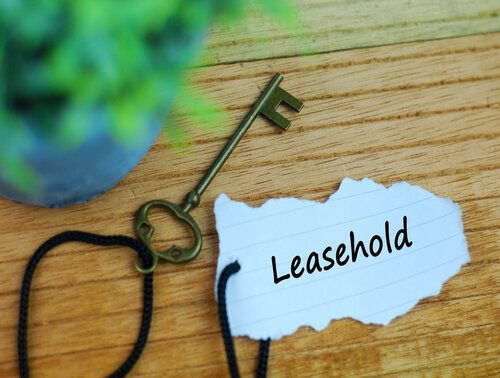
The Government recently announced proposed changes to the law concerning the extension of leases for leasehold properties. The proposed changes followed a review that was undertaken by the Law Commission last year whose recommendations were an overhaul of residential property in England and Wales. The aim of the recommendations by the Law Commission is to reduce the number of homes sold on a leasehold basis so as to provide the opportunity for leaseholders to take a more effective control of their property.
Under the current statutory lease extension procedure, leaseholders can extend their lease by ninety years in addition to the remaining term and the ground rent is reduced to a peppercorn, which is a nominal sum.
Under the new proposals by the Government, leaseholders in England and Wales will have the right to extend their lease by 990 years at a zero-ground rent. This right will apply to all leaseholders and will be of a particular interest for leaseholders owning a house as the current position is that their lease may only be extended by an additional fifty years.
In addition to the increase of the change of term, the Government has also proposed a change to the valuation process for calculating the premium for the lease extension. The current calculation is complicated and usually carried out by surveyors, which increases the costs of the lease extension process for leaseholders. The Government has stated that there will be an online calculator under the proposed changes to enable leaseholders to see what they may be required to pay for the premium.
It is believed that the legislation to put the proposed changes to the lease extension process into law will be put before Parliament this year. However, the proposed changes are likely to face opposition from Freeholder Companies due to the significant amount of money that they could lose from the changes to the premium payments.
The opposition from Freeholder Companies could result in significant delays to the changes to the lease extension process coming into effect. Further to this, the opposition could result in there being amendments to the proposed changes that could limit the scope and impact of the proposed changes as announced in their current form.
If you are currently considering extending your lease, you may wish to consider whether it is worth waiting for the changes to the current process to come into effect before doing so. However as detailed above, the proposed changes could take a significant amount of time before coming into effect and may not be as drastic as proposed resulting in a process that may not be too different to the current process. You should also consider that under the current process, the premium for extending your lease will continue to increase as the term of the lease decreases, particularly once the term of your lease reaches eighty years and below.
If you are looking to extend your lease or have any questions about extending your lease, contact Richard Lyne, and he will set you on the right legal path.